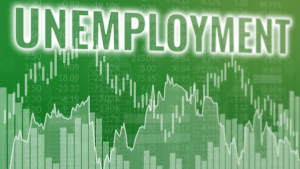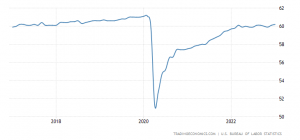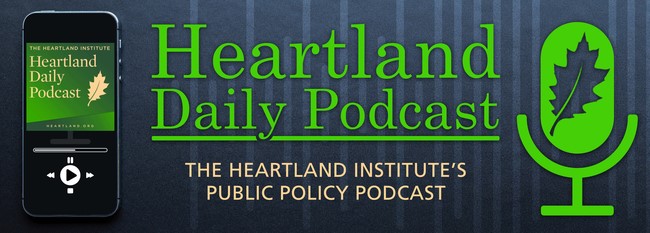Life, Liberty, Property: Storming the education establishment, parents and taxpayers are challenging government school policies.
You need to SUBSCRIBE to Life, Liberty & Property. (It’s free.) Read previous issues.
IN THIS ISSUE:
- Storming the Education Citadel
- Russia Cuts Oil Production as Sanctions Push Per-Barrel Revenues Down
- Phantom Job Increases, Real Fed Damage
- Indiana Considers ESG Rollback
- Cartoon
Storming the Education Citadel

Once upon a time, to claim that the Communists were trying to take over the nation’s schools marked one as a bit of an oddball at best and a paranoiac at worst. No longer. After several decades of steadily increasing leftist bias in education, capped off by more than a decade in which teachers and administrators have openly turned government schools into indoctrination and recruitment centers for gender, race, and class warfare, it is perfectly evident that openly anti-American forces have at the very least an outsized influence on the education of the nation’s children.
Of course, it’s easy for the education establishment to tell the complainers to “Build your own Twitter!” In addition to recalling what happened when Parler tried that, parents and taxpayers are incensed they have to pay for a corrupt system in addition to any alternative they might try to build. Those who do not want to use Twitter and other such venues are not forced to pay for them (directly, at least). That’s not the case with government schools, which are one of the biggest expenses on state governments’ balance sheets.
An important element of this transformation of schools from centers of education into bastions of indoctrination is the plethora of state laws that ensure the public does not get much say in what happens in the classrooms (and, alas, locker rooms and bathrooms). Writing at The Center Square, commentator William Haupt III notes state governments have long kowtowed to the education establishment and, particularly, to the powerful teachers unions that contribute extravagant amounts of money to political campaigns. Captive politicians have accordingly constructed an elaborate obstacle course to make it exceedingly difficult for concerned parents and taxpayers to run for their local school boards or otherwise influence the system:
Some of the most involved parents pay little attention to school board elections because they don’t know when they are held. It is common that these elections take place at times that differ from the general elections. This helps both teachers and their unions retain control of education curriculum.
UC Berkeley Political Scientist Sarah Anzia recently released a book examining the consequences of off-cycle elections in U.S. politics. She finds that 90% of states hold elections for municipal races apart from major national elections. Data obtained from the National School Boards Association shows that three quarters of the states hold school board elections off cycle to limit voter turnout.
By decreasing voter turnout, this enables unions to get increased pay and benefits for the teachers. It also allows them to adopt and implement policies, teaching methods and curriculum developed by the federal and state Departments of Education and the local liberal politicians.
Low voter turnout is the key to union power and the perpetuation of the education establishment everywhere, Haupt writes:
In states that run board elections concurrently with general elections, most races are decided in the primaries. Since the average turnout for primary elections is 27% of registered voters compared to 60% for general elections, this guarantees school board incumbents are almost always reelected.
These tactics combine to create an embedded education establishment that sees no need to respond to the wishes of parents and taxpayers, Haupt notes:
For well over 100 years, we’ve had “off-cycle” school board elections simply to conciliate teacher unions and the teachers. Until recently, this widespread and questionable practice of local school districts holding elections apart from general elections has been taking place across the nation.
This and other policies—such as lack of transparency, truancy laws, and establishment of local property taxes as a major source of school funding (which means it takes fewer votes to control the outcome of spending referenda)—have created a system in which entrenched interests can control the schools with minimal recourse for parents.
This has created an irresistible temptation for the education establishment to engage in overreach, manifested in the controversies over low academic achievement, racially charged curricula, anti-American bias in history curricula, ineffective math and reading teaching methods, unisex bathrooms, antipathy toward people with strong religious beliefs, student violence toward teachers and other children, social-emotional learning schemes, gender teaching aimed at very young children, age-inappropriate books in school libraries, coverups of sexual assaults by students and staff, and, more broadly, poll numbers showing increasing support for socialism and opposition to Christianity among those in their twenties and early thirties.
The increasingly radical education agenda has brought on a strong backlash. Haupt writes,
In the past few years as progressives have been forcing their far left policies on public education, these often-ignored school board elections are gaining much-needed attention from the GOP. Conservative groups have been stepping up to support anti-progressive candidates in local board elections as more concerned parents are showing up to attend their local school board meetings. …
Conservative groups have taken notice that these elections mean more than just getting rid of the progressive curriculum. Their aim is to limit the control that Democrats and the unions have on the school systems.
Having been forcibly removed from school board meetings or had their microphones shut off, parents and other concerned taxpayers across the country have increasingly been running for school board positions and winning. A new group called the 1776 Project has successfully elected “conservative majorities in dozens of school districts across the U.S. while promoting their ‘parents bill of rights,’” Haupt notes:
According to campaign finance filings, they netted victories in Texas and Pennsylvania, spending $2 million during the last campaign cycle. The 1776 group is campaigning for dozens of candidates already for the next election cycle. It’s supporting candidates in Maryland’s Frederick and Carroll counties, in Bentonville, Arkansas, and 20 candidates across Michigan with many more to come.
Its candidates have won not only in deeply red locales but also in districts with liberal strongholds, including Philadelphia and Minneapolis. Ryan Girdusky, the founder of this highly successful group, said, “Places we’re not supposed to typically win, we’ve won and I think we can keep on winning.”
Meanwhile, more states are creating competition for students by establishing education savings accounts (ESAs) through which parents can choose whatever location and style of education they consider best for their children. In January, Gov. Kim Reynolds of Iowa signed the Students First Act, creating ESAs for the state’s children. Several other states are considering ESA bills.
The education establishment and the politicians beholden to the teachers unions’ campaign contributions will not go away quietly. Neither, it appears, will advocates for choice and quality education.
Source: The Center Square
Subscribe and Get Smarter
Russia Cuts Oil Production as Sanctions Push Per-Barrel Revenues Down

The Russian government just announced it is cutting the nation’s oil production by 5 percent. That is only about 0.5 percent of the global supply, so the decision should not have any great economic effect in itself. In addition, Western governments and central banks are doing their level best to bring on a worldwide recession, which will push oil prices down.
Sanctions by the United States and Europe have forced Russia to cut the price of the oil it sells to the remaining buyers. Russia’s oil and gas revenues in January were just over half of what the country netted in January 2022, and government spending has increased by 59 percent, largely caused by war costs. That is going to make life even more miserable for the Russian people and put a huge amount of pressure on the Russian government.
The West will consider this a success, and it certainly is the outcome our governments wanted. An increasingly legitimate worry is that this achievement will lead to an outcome very much to be feared.
Sources: The Wall Street Journal
Phantom Job Increases, Real Fed Damage

In his State of the Union Address last week, President Joe Biden said, “As I stand here tonight, we have created a record 12 million new jobs, more jobs created in two years than any president has ever created in four years.”
Biden did not create those jobs either directly or indirectly. The employment increases during the past two years were merely a continuation of the job growth spurred by the recovery from the COVID-19 lockdowns. The employment growth resumed a trend that had been interrupted by the pandemic lockdowns and is attributable to the tax cuts and regulatory relief established under President Donald Trump:
United States Employment Rate

What’s more, the employment rate has still not reached its pre-pandemic level, as the chart shows.
As Cato Institute Senior Fellow Alan Reynolds notes, the ballyhooed “job increases” reported for last month were in fact job losses, as is always the case when the annual temporary Christmas hiring boom is reversed. The fictitious increase is the result of a seasonal correction to the data. A much better indicator of the state of the job market is hourly earnings. The news there is not good, as the number is trending down rapidly, Reynolds notes:
Hourly earnings [growth] in the private sector slowed to a 3.6% annual rate (0.3% this January), down from 4.8% in December, 5.2% in November and 8% in January of 2022. There is no shred of evidence of accelerating private wage gains, without which Fed officials’ banal “tight labor market” mantra is pointless.
Unless Fed officials believe they must try to shove down the Bureau of Labor Statistics’ seasonal adjustments with higher interest rates, it would be even more foolish than usual for them to treat these preliminary estimates of “seasonally adjusted” job gains as a fearsome omen that falling inflation is about to flare up again in a mysterious burst of spontaneous combustion.
The Federal Reserve has been pushing interest rates up for several months, trying to suppress the economy in response to a low unemployment rate it sees as inflationary. Let us hope that the Fed governors were not listening to Biden on Tuesday.
Sources: Cato at Liberty; Trading Economics; The White House
Indiana Considers ESG Rollback
Lawmakers in Indiana are considering a bill that “would combat environmental, social and governance (ESG) scoring systems and ensure state pension funds are invested solely to achieve the maximum return on investment for pensioners, rather than advancing social or political causes that may likely lead to lower returns and/or underperformance,” The Heartland Institute reports.
Invented and pushed on corporations by far-left activists, ESG scores target the energy industry, firearms manufacturers, and other politically incorrect enterprises and push companies to support leftist causes. They are “essentially a risk assessment mechanism increasingly being used by investment firms and financial institutions that forces large and small companies to focus upon politically motivated, subjective goals which often run counter to their financial interests and the interests of their customers. Companies are graded on these mandated commitments to promote, for example, climate or social justice objectives. Those that score poorly are punished by divestment and reduced access to credit and capital.”
My Heartland Institute colleague Matt Dean, former Majority Leader of the Minnesota House of Representatives, wrote to me in favor of the bill:
Hoosier state lawmakers are rightly pushing back against the insidious ESG investment cartel. In HB 1008, they ensure that Indiana pensioners’ hard-earned money and long-term economic interests are secured by mandating that state pension funds are invested with nothing but an eye toward the best rate of return.
Legislation that prioritizes fiduciary responsibility and demands that the proxy voting of the state’s stake worth tens of billions of dollars—and not left-wing social and environmental causes—protects state economic sectors like agriculture and coal mining and moves further away from the nebulous net zero carbon dioxide emission demands of international banksters.
HB 1008 is under consideration in the House Committee on Ways and Means, and the FiscalNote website rates it as “much more likely to pass” than other bills before the state legislature. I hope they’re right.
Source: The Heartland Institute; Indiana House Bill 1008; FiscalNote
Cartoon of the Week

via Townhall













